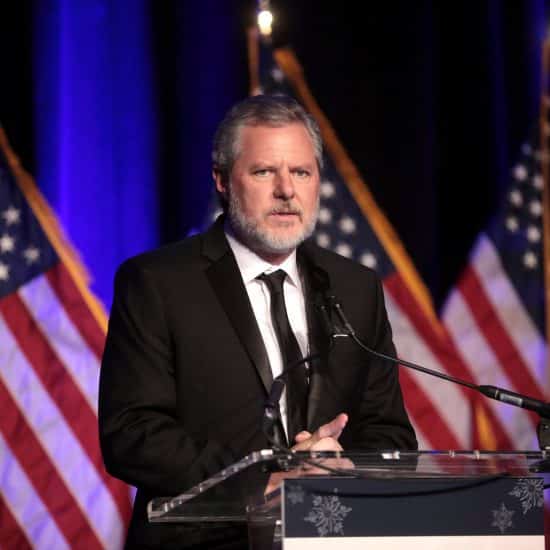
In Greek mythology, the mighty warrior Hercules created poisonous arrows after slaying the many-headed Hydra. The word for these deadly arrows (toxikon) eventually gave life to the modern English word “toxic.”
 Author and leadership coach Bob Dale noted the connection between that ancient Greek concept and unhealthy church leadership. Based in Virginia, Dale has served as pastor, seminary professor and denominational leader.
Author and leadership coach Bob Dale noted the connection between that ancient Greek concept and unhealthy church leadership. Based in Virginia, Dale has served as pastor, seminary professor and denominational leader.
“Toxins poison the body — and that’s true in biology and theology,” Dale explained. “Toxins inflame the body and muddle the mind.”
Dale believes “pastoral leadership is a two-sided coin” that deals with both a church’s mission — “who we are and what we’re called to do for Christ” — and a church’s morale — “the relational dimension of leadership that builds healthy community.” Both mission and morale remain susceptible to toxins.
“Poisoned mission puts self before God’s kingdom and preaches a lesser gospel,” Dale explained. “Poisoned mission puts self before God and creates an idol.”
“Poisoned morale plays favorites and fosters ‘us/them’ division,” he added. “Poisoned morale favors a faction and excludes or marginalizes those who are not in the favored inner circle.”
Bill Wilson, founder of The Center for Healthy Churches in Clemmons, N.C., also sees the problem of toxic leadership. A former pastor and longtime church health consultant, he believes “unhealthy leadership follows into one of two extremes,” over-functioning and under-functioning.
Pastoral leaders who fall into the over-functioning camp “exercise more authority and responsibility than they should, micromanage and treat laity as second-class citizens.” On the other end of the continuum, those who are under-functioning “don’t step up and exercise appropriate leadership as a pastor” and are “constantly checking the wind” to make decisions, Wilson said.
He added that “unhealthy clergy often do not even know” they are over- or under-functioning. Thus, pastors “need people who give you honest feedback.” Alluding to the biblical account of the prophet Nathan challenging King David for abusing power, Wilson added that a good pastoral leader will “ask people to be your Nathan.”
Dan Southerland, lead teaching pastor at Westside Family Church in Lenexa, Kan., believes part of the problem with pastors not finding a healthy leadership style occurs because some seminaries do not teach leadership.
“Pastors are left to themselves to figure out what a servant leader looks like,” he explained. “Jesus modeled that well, yet many of our churches are instead led with a CEO model of leadership. That’s going to be toxic.”
A CEO-style leader will “work for the people you have to please” instead of working “to feed the sheep,” Southerland said.
Dale argued a critical moment in allowing toxic leadership to poison a congregation occurs with pastoral transitions. “Some pastors can exit in toxic fashion and set up an atmosphere that’s toxic and reactive,” he explained.
He warned that as a church finds itself hurt after a bitter departure, “mad people then pick the search committee.” He noted that often “the loudest and most negative” people are chosen as an attempt to safeguard against a similar pastoral experience. However, with such a “tainted process,” they “tend to hire people who are as mad as they are.” Dale added that if a church finds itself hurting following a pastoral departure, the people must work harder to avoid a toxic search.
“They need to get on track so they don’t get frustrated and do something stupid,” he said.
Several years ago Westside brought in an outside consultant to study the church’s leadership and offer recommendations for change, Southerland noted. The report “helped us identify where we were toxic. It nailed us to the wall and we needed it.”
The consultant offered areas for leaders to work on and then followed up with them two years later. The church moved dramatically from an unhealthy diagnosis to a healthy one.
Southerland believes churches could benefit from an outside voice to help identify unhealthy aspects. “If we could fix ourselves on being toxic we would,” he said. “But we can’t see we’re toxic.”
He drew a comparison to doctors offering medical advice, noting, “If we could fix ourselves, doctors would be out of business.”
However, he fears “very few churches are willing” to ask for an outside expert to diagnosis them.
“Jesus’ job is to grow our church, our job is to manage its health,” he added. “If we get healthy, God’s going to grow it. You don’t have to tell a 4-year-old to grow. You just have to manage their health.”
Wilson similarly noted the importance of pastoral leaders helping to build a healthy church family. He pointed to the need for strong emotional intelligence — the ability “to manage people and be a leader” — that “many times trump academic training and resume.” He added that spiritual intelligence is also importance so pastors can “be humble and broken.”
Pastors must recognize they are not God, Wilson said. “They’ve lost that sense of Christ as the Lord of the church and they’ve mistaken themselves as leaders of the church.”
Brian Kaylor is a freelance writer and author based in Jefferson City, Mo.






